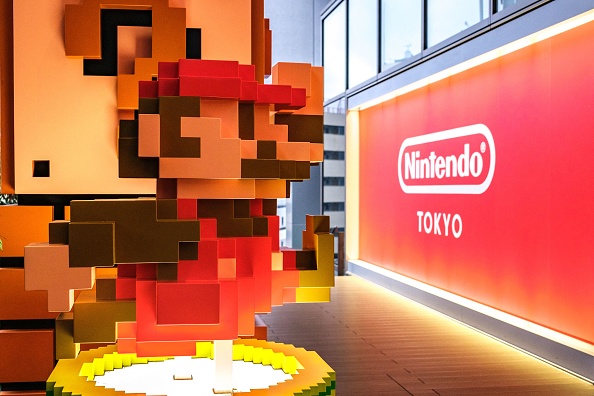
Amid a Q&A with Japanese investors held on Tuesday, May 10, Nintendo President Shuntaro Furukawa divulged various internal necessities still requiring the company to expand to greater heights. A slight decline in sales revenue and operating profit, witnessed via a respective 5.6% and 15.6% drop, proved to put a damper on the overall mood, in addition to the diminished sales goal set for the Nintendo Switch platform following semiconductor shortages.
Nintendo's 23 million sales goal, revised from an original 25.5 million goalpost, proved to be right on the money for the firm as demand for the Switch sees a slowdown. The release of the Nintendo Switch OLED in Oct. of last year may have assisted only slightly, but limited major releases in software, aside from a strong showing in Pokémon Legends Arceus, coupled with supply chain woes, made hardware a far more difficult sell in Q1.
Thus, the company is dutifully looking toward the future as it sets its sights on where to innovate next. In its six years of life under the company that spans three varied iterations (four counting the V2 of the base model), the Nintendo Switch has sold a whopping 107.65 million units, marking it as Nintendo's best-selling home console ever and putting it close in line to the top, where PlayStation's PS2 reigns supreme at 155 million units sold globally.
To Furukawa, it's not only enhanced software offerings and add-ons in the form of its classic re-releases via the upgraded Nintendo Online subscription but also a bolstered and more profound Switch system. This single platform, according to Furukawa, has allowed the brand "to focus all of our development resources" on the Switch to maintain a five-year roadmap for games on the horizon.
Related Article: Nintendo Switch Leak: Game BOy Games Are Coming, Leakers Share Emulator Information
"However, the question whether we will be able to just as smoothly transition from the Nintendo Switch to the next generation of hardware is a major concern for us," the Nintendo President said. "Based on our experiences with the Wii, Nintendo DS, and other hardware, it is very clear that one of the major obstacles is how to easily transition from one hardware to the next."
The question, then, is how will Nintendo top one of the greatest consoles it's ever made, especially in a time wherein mobile play has become even more streamlined and approachable? Not only are there cloud-based alternatives, main among them being Xbox Cloud Gaming and Nvidia GeForce Now, but also a rather popular rival handheld called the Steam Deck, which as of yet is making strong strides for Valve as it reaches the million units sold mark, according to Steam's internal player count data.
There are also some rumblings of a forthcoming PlayStation handheld in the works. Though totally based on rumor, a revised and reworked PSP Vita would most certainly sell like hotcakes and give Nintendo more than a run for its money. Microsoft, too was supposedly "dabbling" with a handheld device, reported all the way back in Dec. of last year.
The keyword here is "transition," which Furukawa seems to focus on heavily. Although an updated system has been rumored for well over two years now, coined the Nintendo Switch Pro, Nintendo also doesn't want to leave languishing the over 100 million current users the Switch already has. Nintendo has to consider how best to ensure its next major hardware release keeps both old and new players happy.
Still, a boost in hardware is certainly a must, given the capped 30fps and 720p potential of its specs. The concern is aplenty, too, in the forthcoming debut of Nintendo's Breath of the Wild 2, which many fans seem to think will run poorly on the Nintendo Switch, but Digital Foundry has amended any of these woes.
Thus, Nintendo must retain the already existing audience with software that can run as well on the Switch's inevitable successor. Otherwise, the firm will most certainly lose that necessary retention and "long-term relationships," which Furakawa noted as its most prominent purpose.
Said Furakawa amid an investor's call in Feb., "There are currently nearly 100 million annual playing users, and going forward, it is important to consider how we can maintain and expand on that number. This will also be essential when we consider our plan for the next hardware platform."
Read Also: Nintendo Gets Accused Of Being Anti-Union









